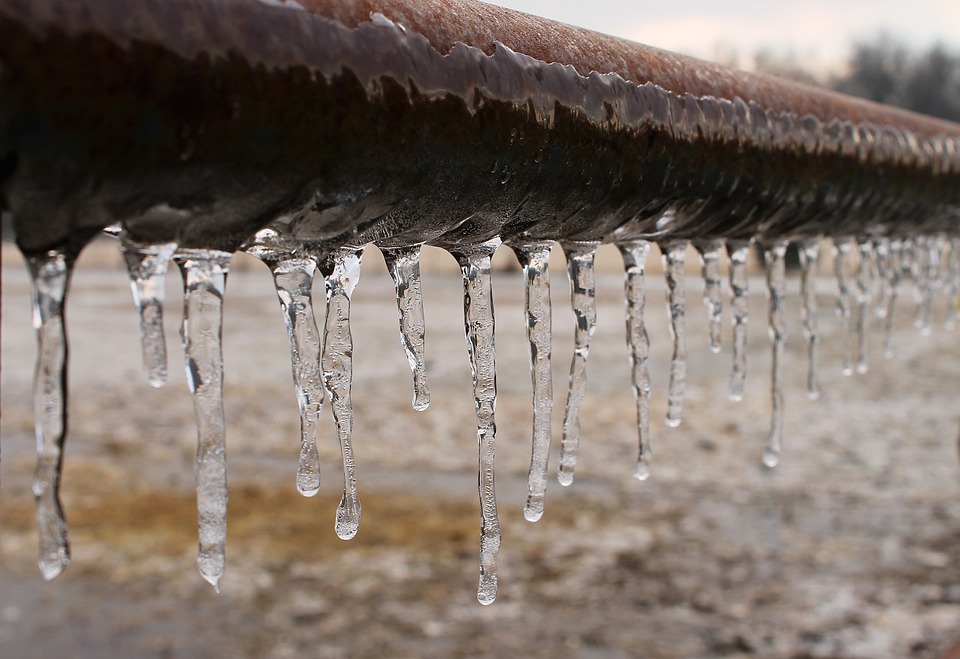Are you searching for answers concerning Prevent Frozen Pipes ?

Winter can damage your pipes, specifically by freezing pipelines. Below's exactly how to prevent it from happening and what to do if it does.
Introduction
As temperatures decline, the risk of icy pipes boosts, possibly causing costly fixings and water damages. Comprehending just how to avoid frozen pipes is vital for homeowners in chilly environments.
Understanding Frozen Pipes
What triggers pipes to ice up?
Pipelines ice up when subjected to temperatures listed below 32 ° F (0 ° C) for prolonged periods. As water inside the pipelines freezes, it expands, taxing the pipe wall surfaces and potentially creating them to break.
Dangers and problems
Icy pipelines can result in supply of water interruptions, property damage, and expensive repairs. Burst pipes can flood homes and trigger considerable structural damage.
Indicators of Frozen Piping
Identifying frozen pipes early can avoid them from rupturing.
Exactly how to determine frozen pipes
Look for decreased water circulation from taps, uncommon odors or noises from pipelines, and noticeable frost on subjected pipelines.
Avoidance Tips
Protecting susceptible pipelines
Cover pipes in insulation sleeves or make use of warmth tape to safeguard them from freezing temperatures. Focus on pipes in unheated or external areas of the home.
Home heating strategies
Maintain indoor areas effectively heated, specifically areas with pipes. Open closet doors to allow cozy air to circulate around pipelines under sinks.
Protecting Exterior Plumbing
Garden tubes and outdoor taps
Separate and drain pipes garden pipes prior to winter months. Set up frost-proof spigots or cover outdoor faucets with protected caps.
What to Do If Your Pipes Freeze
Immediate activities to take
If you think frozen pipes, keep taps open up to eliminate pressure as the ice melts. Utilize a hairdryer or towels taken in warm water to thaw pipes gradually.
Long-Term Solutions
Structural modifications
Consider rerouting pipes far from exterior walls or unheated locations. Include extra insulation to attic rooms, cellars, and crawl spaces.
Upgrading insulation
Invest in top quality insulation for pipelines, attic rooms, and wall surfaces. Proper insulation aids maintain regular temperature levels and minimizes the danger of frozen pipelines.
Verdict
Stopping frozen pipelines calls for proactive measures and quick responses. By understanding the reasons, indicators, and preventive measures, homeowners can shield their plumbing throughout cold weather.
Helpful Tips to Prevent Frozen Pipes this Winter
UNDERSTANDING THE BASICS: WHY PIPES FREEZE AND WHY IT’S A PROBLEM
Water freezing inside pipes is common during the winter months, but understanding why pipes freeze, and the potential problems it can cause is crucial in preventing such incidents. This section will delve into the basics of why pipes freeze and the associated problems that may arise.
THE SCIENCE BEHIND FROZEN PIPES
When water reaches freezing temperatures, it undergoes a physical transformation and solidifies into ice. This expansion of water as it freezes is the primary reason pipes can burst. As the water inside the pipe freezes, it expands, creating immense pressure on the walls. If the pressure becomes too great, the pipe can crack or rupture, leading to leaks and water damage.
FACTORS THAT CONTRIBUTE TO PIPE FREEZING
Low Temperatures: Extremely cold weather, especially below freezing, increases the risk of pipes freezing. Uninsulated or Poorly Insulated Pipes: Pipes located in unheated areas, such as basements, crawl spaces, or attics, are more prone to freezing. Insufficient insulation or lack of insulation altogether exacerbates the problem. Exterior Wall Exposure: Pipes running along exterior walls are susceptible to freezing as they encounter colder temperatures outside. Lack of Heating or Temperature Regulation: Inadequate heating or inconsistent temperature control in your home can contribute to frozen pipes. PROBLEMS CAUSED BY FROZEN PIPES
- Pipe Bursting: As mentioned earlier, the expansion of water as it freezes can cause pipes to burst, resulting in significant water damage.
- Water Damage: When pipes burst, it can lead to flooding and water damage to your property, including walls, ceilings, flooring, and personal belongings.
- Structural Damage: Prolonged exposure to water from burst pipes can compromise the structural integrity of your home, leading to costly repairs.
- Mold and Mildew Growth: Excess moisture from water damage can create a favorable environment for mold and mildew growth, posing health risks to occupants.
- Disrupted Water Supply: Frozen pipes can also result in a complete or partial loss of water supply until the issue is resolved.
WHY CERTAIN PIPES ARE MORE PRONE TO FREEZING
- Location: Pipes located in unheated or poorly insulated areas, such as basements, crawl spaces, attics, or exterior walls, are at higher risk of freezing.
- Exterior Pipes: Outdoor pipes, such as those used for irrigation or exposed plumbing, are particularly vulnerable to freezing as they are directly exposed to the elements.
- Supply Lines: Pipes that carry water from the main water supply into your home, including the main water line, are critical to protect as freezing in these lines can affect your entire plumbing system.
- Underground Pipes: Pipes buried underground, such as those connected to sprinkler systems or outdoor faucets, can be susceptible to freezing if not properly insulated.
https://busybusy.com/blog/helpful-tips-to-prevent-frozen-pipes-this-winter/

As an enthusiastic person who reads about Helpful Tips to Prevent Frozen Pipes this Winter, I figured sharing that piece was worth the trouble. Enjoyed our article? Please quickly share it. Let other people discover it. I truly appreciate reading our article about Prevent Frozen Pipes .
At This Website